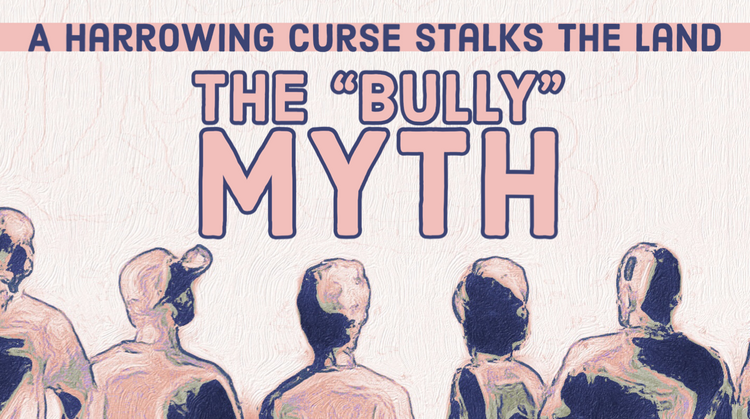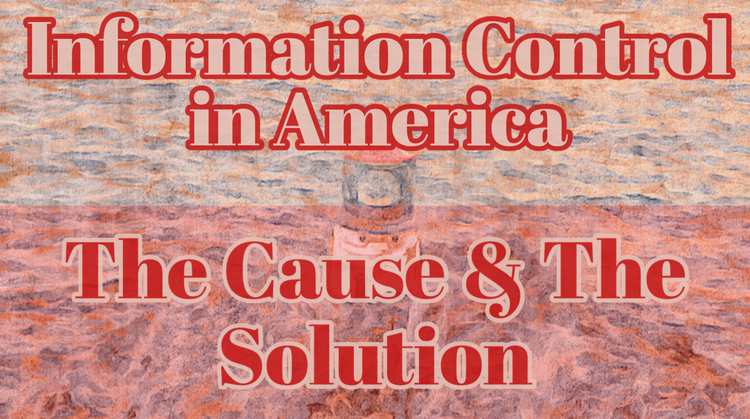Individualism vs Group Identity
Personality vs Superficial Tribalism
There are two approaches to distinguish a person; two mutually-exclusive foundations from which to exist as a human in the world.

What is Individualism (Personality)?
In psychology, personality testing is primarily used to describe an individual.
Personality testing relies on values (domains) that explain human behavior. These systems of values are defined as linear spectrums (axes, like the x-y coordinate axis), where one variable will exist on one end of the spectrum and another will exist on the other like the extroverted and introverted scale. Note that this definition assumes that the two variables are inversely proportional, so that if a person scores higher on one, that person will score lower on the other. In informal logic, this particular relationship between two variables is captured by the phrase, "mutual exclusivity".
An example of a value is the extroverted/introverted domain of many personality testing. It is not merely assumed that these two variables are inversely proportional – they are defined to be, so that a person can only have a certain amount of one verus the other. The higher someone scores on extrovertedness, the lower that person will score on introvertedness. Note that since domains of personality are a system of linear axes (spectrums), theoretically, no two people can score presicely the same on each domain. The 16 Personalities test, like many other personality tests, defines categories of personalities (hence, the "16" personalities); yet within each category, a person can score slightly higher on a variable than another person in that category, resulting in categorically similar, but individually different behavior. We will expand more on this idea later.
People conduct their own, informal personaly testing on a daily basis. A person may not explicitly ask another where she falls on the observant/intuitive spectrum, but human interactions often revolve around individuals attempting to (A) gauge the values of other individuals, and (B) broadcasting their own values to others. Hence, people are constantly analyzing each other's personalities in order to establish new relationships, maintain existing bonds, or justify the end of others.
How does this relate to individualism?
Philosophically, individualism assigns moral worth to the individual, where self-autonomy is prioritized. This prioritization of self-autonomy is emphasized everywhere, such as the ability of people to express themselves uniquely as artists or have nuanced opinions that differ from their political affiliations.
The emphasis on self-autonomy has arguably led to the most rigorous forms of independent consensus that mankind has created – the scientific method, where grouping and ideology is removed entirely from the fact-finding methodology. In the scientific method, the appeal to authority and other group-based fallacies are omitted, and the individual has the power to discover facts of the world without being a member of a dominant group in society. As a result, any individual can make a compelling argument without the backing of authority. Without an emphasis on groups and authority, any individual's ability to communicate knowledge is limited only by his/her skill with logic and access to evidence.
Personality is simply the scientific method applied to individuality. Although there exists broad groupings of personalities, variation within those groups is accounted for. This variation is what is meant when referring to categorically similar, but individually different behavior. Variation is a logical conclusion of the way that values are defined as spectrums in personality testing – spectrums with an infinite number of places to land.
Variation is the heart of individualism. We are all different even if groups of us are similar in some ways; but there is another theoretical approach to describing humanity that does not emphasize the individual and cannot come to terms with variation.
What is Group Identity [Superficial Tribalism]?
Group Identity, which I will simply refer to as identity hence forth, is an alternative approach to classifying humans. In the identity approach, a person is defined by the groups that that person falls under, rather than values or personality of that person. You, dearest reader, are an amalgamation of the groups that you can be sorted into rather than the fundamental values that determine your complex behavior.
The variation that occurs within groups is ignored, and must be. Otherwise, individualism takes root because people would only loosely define themselves by their groups, and mostly define themselves by their personalities. An identity approach wants people to rigidly define themselves by the groups they belong to, so if a person decides to criticize his/her own group, the conclusion of an identity approach is to exclude that person from the group, rather than accept a small amount of variation within the group. Exclusion must occur if identity is to be emphasized over individuality.
Grouping is often based on superficial qualities, such as ethnicity, sexual orientation, and gender, despite no research findings to suggest deep and consistent ideological differences between these groups. This is why we refer to group identity as superficial tribalism, or the grouping of people by surface-level attributes, rather than personality (values).
The most extreme case of identity is with Critical Race Theory (CRT), where the concept of the individual does not exist. In CRT, a person is defined solely by the groups that a person belongs to with an emphasis on group heirarchy. If this idea of identity is taken far enough, objective measures like data and data analysis (statistics and empirical analysis) are rejected as attacks on certain groups. CRT paints a bleak scenario where groups are pitted against each other in a never-ending struggle for power. A person is measured by how vicimized they are – or the groups that the person belongs to. The more victimize the group is percieved to be, the more ethical superiority that group has; hence, the race to victimhood by practitioners of CRT, which is an inevitable result of identity.
Identity Does Not Allow Debate
Some topics are safe between individuals and identities, but if an identity's group(s) is remotely connected to the topic, then discussion is unlikely to occur. Groups have natural variation in them, and that variation is proportional to how clearly-defined the group is. This variaition has been shown across every conceivable human group, yet identity has to reject variation to work as designed.
As a result of rigid adherance to grouping, an observation that is critical of a group will be taken as an insult by a person that displays identity behavior (a term I use to account for complexities where a person can still believe in both individualism and identity, but display one over the other depending on context). Whether that observation is true or false is a secondary matter to identity advocates.
Since groups can be measured with data and data analysis, statements can be made of groups. For instance, white supremacists seem to only inhabit the right-leaning side of the political spectrum. This statement is factually true. For the individual, this statement is not indicitive of right-leaning politics necessarily, since the individual approach assumes nuance to groups. In other words, an individual can be a member of a right-leaning political group but not be a white supremacist; and indeed, very few white supremacists exist yet many right-leaning people do.
Another example: Extreme leftism tends to lead to mob tyranny, or collective and affiliated violence. This statement is factually true as well. Whereas the extreme ends of the right-leaning leads to "lone wolf" actors, extreme leftism leads to affiliated attacks. It shoud not be surprising that while people have similarities/difference (otherwise, groups wouldn't exist), their extremes would as well. A left-leaning individual should not be offended by this statement, since they only loosely define themselves by their groups, and realize that these extremists do not define them despite being left-leaning. On the other hand, a left-leaning identity sees this statement (despite it's truth) as an insult. Identity-driven people will not be capable of discussion, since observations like this are interpretted as sort of group warfare.
Even for statements about groups that are untrue, the approach of the individual and the identity are fundamentally different.
As a simple example, "all liberals are socialists," is a statement that can easily be refuted, since only a single instance that disproves this statement is required. If an individual that happens to be within this group (liberals) sees this statement, this individual may construct a counterargument. However, if an identity that falls within this group sees it, the identity interprets it as an insult because identities define themselves by their groups, not their personalities or self-autonomous individuality. They are profoundly inseparable from their groups. Whenever objective observations or even biased, false statements are made, one can choose to emphasize knowledge or emphasize feelings; and that emphasis can be determined by whether a person is an individual or an identity.
Going back to factually true statements about groups – even then, an identity interprets those observations as a deep insult to their very being. This is presicely why an identity often seems hysterical after encountering an otherwise objective observation. The identity does not interpret these as objective, impartial statements, but as merely a clever scheme to harm them. For the individuals reading this, imagine someone makes a snide statement about your intelligence. Whether you are offended by this statement or not, the way that you interpret the messenger's intent is similar to how identities interpret fact-based observations that criticize their group(s). This is a profound difference between the individual and the identity, and it's roots are in how the two define what a human being is.
Why Would a Tech/Software Journal Write This?
The ARKA Journal investigates online manipulation campaigns, and everything related to them. This is why the counter-violent extremist (CVE) reports on far-right extremism is such an important topic for ARKA, because these reports are used to justify censorship, shadow ban software, the Redirect Method (which manipulates ad feeds of users, usually directing them to far-left pages), and CounterSpeech groups. The CVE community is not above falsifying reports to make far-right extremism seem more significant than it actually is.
So why is psychology a topic that ARKA is bringing up? First of all, this is not the first time, that The ARKA Journal has written about psychology. The most comprehensive review of the psychology of trauma and resilience that currently exists was written by AKRA because some CVE software techniques prey on the mentally ill in an attempt to turn those at-risk audiences into left-leaning symathizers.
This time, however, ARKA posts are being visited by irrational commentators on social media, and this is a phenomenon that has occurred across scientific fields and political discussions for several years now. Rather than presenting thoughtful critiques, some people choose bursts of outrage and personal attacks. While many factors are involved, one of those factors is this idea of identity. Some commenters simply see information that they do not like, and rather than debate the issue or ask questions, they attempt to turn the discussion into a game of one group vs another group.
Debates are being hijacked by identity advocates in order to defend their own insecurities. These people are not individuals and do not possess the resiliency and and inquisitive detachment that individualism entails.
Some conspiracy theories from right-leaning audiences describe this phenomenon as "They are turning us against each other", whoever they is. While ARKA cannot comment on the validity of this theory, group identity certainly plays a role in this unwinnable game. Whenever an idea is directly or indirectly connected to groups, and illogical outrage is directed at that idea in an attempt to turn discussion into group warfare, identity is likely involved.

![A Religion Called "Psychology" & the Bully Myth [Part II]](/content/images/size/w750/2022/10/bully2.PNG)




Member discussion